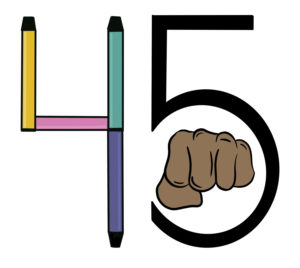Crushing the code
Female students criticize enforcement of dress code
Female students speak out against a dress code that is perceived as damaging to young girls
October 14, 2021
With COVID slowly vacating, a new virus has corrupted the student body: dress code restrictions. Female students are often snatched from their classrooms and being forced to change their clothes due to the potential sexualization they may experience while wearing them.
“I was threatened to [be forced to] change into a hoodie for wearing a very minor V-neck shirt that showed no cleavage,” junior Savannah Hallenbeck said. “It was not serious, and [I feel] larger chested girls are over sexualized [just] by the way they were born.”
The irony in the strict dress code lies in the fact that it is enforced partially to prevent sexual assault, but it has become a form of sexual harrassment itself, making numerous girls feel uncomfortable in what is supposed to be a safe environment. Many girls feel that oversexualizing students and blaming them for their body is only teaching them the idea that their modesty and outward appearance should be prioritized over their education.
“It is disrupting female students’ [education] when they are pulled out of class, missing half of their class period [because] boys might be distracted [by what they’re wearing],” sophomore Riley White said.
On the same day, White and Hallenbeck were wearing a shirt with the exact same neckline, however their body types differ from each other. The two girls, and plenty others, feel that their body types play into who gets targeted with the dress code.
“I am told my body is my fault, but I don’t [believe that],” Hallenbeck said
Hallenbeck and White stand together to fight the descrimination among different body types, along with the inappropriate attention female students are receiving.
Savannah and others, male students as well, feel that blaming students, minors especially, for their natural body is at best uncomfortable, and at worst, predatory.The claim in doing so is to prevent potential sexual assault and it’s toll on students, but has a similar effect when so heavily enforced, including oversexualizing students who are just trying to receive the same education as their male peers.
Many female students not featured in this story have also expressed their discomfort regarding the highly enforced dress code, saying they feel “targeted” and “attacked.”
Students don’t appreciate this unwanted attention, in a domain primarily intended for learning. It has become such a problem that a silent protest occurred, in which students, male and female, wrote phrases on exaggerated oversized t-shirts to object to the outrageous dress code expectations.
“When I’m wearing an outfit I could [potentially] get dress coded in, I’m not wearing it for attention, I wear it because I like it,” White said.





















